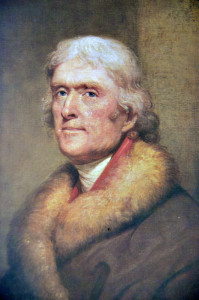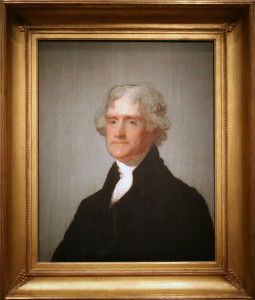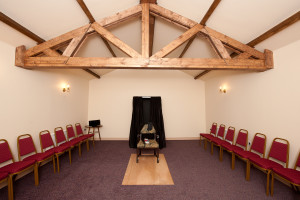 The foolish adherence of mainstream science to the false dogma of materialism is now more than a century old. And materialism has brought us so much pain! It has forced brilliant scientists to waste their careers in pursuing baseless dead-end theories while it continues to keep humankind in unnecessary ignorance and fear.
The foolish adherence of mainstream science to the false dogma of materialism is now more than a century old. And materialism has brought us so much pain! It has forced brilliant scientists to waste their careers in pursuing baseless dead-end theories while it continues to keep humankind in unnecessary ignorance and fear.
The damage caused by that dogma of materialism is evident across all of scientific inquiry, from the diagnosis and treatment of disease through our efforts to better understand the cosmos. But perhaps the field in which it is most patently ridiculous is neuroscience, were yet more careers are being wasted in the expensive study of nothing much.
The fact that the human mind can function independently of the brain is at this point established beyond question. There are so many well-documented cases of out-of-body travel that include observations that would not have been possible if the mind had not been separate from its brain. Every scientist must by now be aware of them! Near-death experiences? The pioneering work being done at The Monroe Institute? Prominent NDE-er Eben Alexander is himself a neurosurgeon, for heaven’s sake! The fact that every neuroscientist must know that evidence has been reported which suggests that the mind is not generated by the brain has to be our ironic backdrop as we consider two examples of what passes for modern scientific inquiry:
* Do You Have Free Will? If we study only the brain, then it is obvious that free will is an illusion. To quote an article that sums up recent experimental results, “our minds appear to be making decisions before we’re actually aware of them — and at  times by a significant degree.” Well, sure. As afterlife research abundantly indicates, and as quantum physicist Max Planck said a century ago, human minds must necessarily pre-exist matter. When you take a brief stint in a material body, you leave most of your eternal mind behind as a kind of super-consciousness that your awareness cannot access while it is attached to a brain. The extent to which your decisions are made beyond your awareness for efficiency’s sake is a topic for another day, but it is patently clear that most bodily decisions are made beyond our conscious ken. Imagine how inefficient our lives would be if we had to consciously deliberate about which muscles to activate, and in which order, every time we wanted to stand from a chair and go and fetch a book from a bookcase! There are important inquiries to be made into the ways in which our super-conscious minds interact with our brains, but scientists can do none of that research while they still willfully mischaracterize the mind.
times by a significant degree.” Well, sure. As afterlife research abundantly indicates, and as quantum physicist Max Planck said a century ago, human minds must necessarily pre-exist matter. When you take a brief stint in a material body, you leave most of your eternal mind behind as a kind of super-consciousness that your awareness cannot access while it is attached to a brain. The extent to which your decisions are made beyond your awareness for efficiency’s sake is a topic for another day, but it is patently clear that most bodily decisions are made beyond our conscious ken. Imagine how inefficient our lives would be if we had to consciously deliberate about which muscles to activate, and in which order, every time we wanted to stand from a chair and go and fetch a book from a bookcase! There are important inquiries to be made into the ways in which our super-conscious minds interact with our brains, but scientists can do none of that research while they still willfully mischaracterize the mind.
* Where and How Are Our Memories Stored? Perhaps the strangest scientific pursuit of all is the hesitant study of the brain itself. As befits mainstream science’s fundamental dogma, all such research must be matter-based, so a typical article begins
 with a bald assertion like, “The human brain has a capacity that is ten times greater than first thought.” Then we read the rest of the article, and we find that this assertion is based on math and speculation and has nothing to do with the actual measurement of memory storage. To prove that they aren’t straying from materialist rules, the authors assert without evidence that “our memories and thoughts are the result of patterns of electrical and chemical activity in the brain.” They do admit, though, that the very brain synapses they are studying “are still a mystery, though their dysfunction can cause a range of neurological diseases.” Of course, the fact that our minds survive our deaths and are greatly enhanced once our awareness merges with our super-consciousness soon after death gives the lie to this whole field of inquiry. And the fact that our memories from past and future lifetimes are accessible to us after death is further proof that our brains are not for storage. At best, scientists might be able to figure out how our brains sort and encode our more important new memories for storage “in the cloud” (as it were), but that kind of productive brain-research must wait. For now, what is being reported is investigations that are fully as foolish as it would be for us to reverse-engineer our television set in an effort to find
with a bald assertion like, “The human brain has a capacity that is ten times greater than first thought.” Then we read the rest of the article, and we find that this assertion is based on math and speculation and has nothing to do with the actual measurement of memory storage. To prove that they aren’t straying from materialist rules, the authors assert without evidence that “our memories and thoughts are the result of patterns of electrical and chemical activity in the brain.” They do admit, though, that the very brain synapses they are studying “are still a mystery, though their dysfunction can cause a range of neurological diseases.” Of course, the fact that our minds survive our deaths and are greatly enhanced once our awareness merges with our super-consciousness soon after death gives the lie to this whole field of inquiry. And the fact that our memories from past and future lifetimes are accessible to us after death is further proof that our brains are not for storage. At best, scientists might be able to figure out how our brains sort and encode our more important new memories for storage “in the cloud” (as it were), but that kind of productive brain-research must wait. For now, what is being reported is investigations that are fully as foolish as it would be for us to reverse-engineer our television set in an effort to find  that guy who reads the six-o’clock news.
that guy who reads the six-o’clock news.
A decade ago, I read articles like these and found them funny. Now, though, all I can see is another decade sadly wasted. At its core, a belief-system is just a religion! Until mainstream science stops worshiping matter and returns to open-mindedly pursuing the truth, it can be of little further use to humankind.






![Pageflex Persona [document: PRS0000038_00067]](https://robertagrimes.com/wp-content/uploads/2015/12/My-Thomas-Front-Cover-188x300.jpg)








![Pageflex Persona [document: PRS0000038_00067]](https://robertagrimes.com/wp-content/uploads/2015/11/Liberating-Jesus-Metallic-Front-Cover-197x300.jpg)































